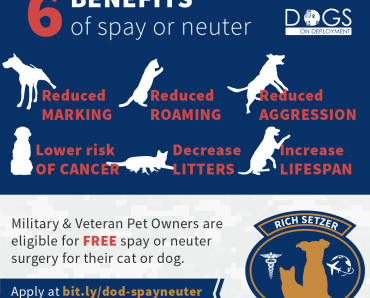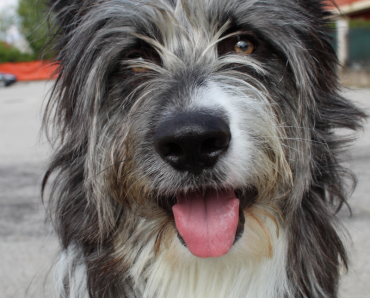5-day-or-less Quarantine Requirements:
- A pet must have had at least two rabies vaccinations, at least 31 days apart, with the second vaccination being given at least 90 days prior to the pet’s arrival in Hawaii. This must be documented on a health record from the pet’s veterinarian. (Pets arriving in Hawaii less than 90 days after the 2nd vaccination must enter quarantine for the remainder of the 90 days.)
- The pet must have a working microchip implanted by a vet prior to arrival.
- The pet must pass an OIE-FAVN rabies blood test done at an approved lab, with results, including pet’s microchip number being sent directly to Hawaii.
- The pet must undergo a 120-day waiting period after passing the OIE-FAVN test, prior to entering Hawaii. (Pets arriving in Hawaii before the 120th day must enter quarantine for the remainder of the 120 days.)
- Dogs and cats must be treated for parasites with Fipronil (Frontline® or K-9 Advantix®) during the 14 days prior to arrival. (Must be documented on pet’s health record.)
Animals meeting all the 5-day-or-less quarantine requirements whose required documentation (Notarized Dog/Cat Import Form AQS-278, negative rabies blood test results, two rabies vaccine certificates, vet’s health certificate showing treatment for parasites, plus payment of $165) are is sent to the Rabies Quarantine Branch 10-days prior to arrival, and will be released to their owners at the airport. If pets are traveling in advance, owners may pick them up (or have a designated agent do so) within one to five days for an additional $59.
Animals meeting all the requirements except for the full 90-day waiting period after the 2nd rabies vaccination will stay in quarantine until the waiting period is complete, at an additional charge of $14.30/day. Pets meeting all requirements except for the full 120-day waiting period after the negative OIE-FAVN rabies blood test will stay in quarantine until the waiting period is complete, at an additional charge of $14.30/day. Pets failing to meet any one of the other requirements (two appropriately spaced rabies vaccinations, working microchip, and negative OIE-FAVN blood test) undergo the 120-day quarantine at the Honolulu Airport Animal Quarantine Holding Facility at a cost of $1,080 per animal.
Experienced service personnel know that station changes are a routine part of life with a military career. But when military pet owners receive orders, moving them outside the continental United States, they soon discover that their move will be far from routine. That’s what happened when Ryan received notification of a Permanent Change of Station (PCS) from Georgia to Hawaii in the spring of 2014. Ryan’s family had heard tales of the difficult and expensive process to relocate pets overseas, so Ryan made every effort to get an assignment on the mainland, but his efforts were to no avail. In the end, Ryan, and his wife, Reese would have only a short time to prepare for the move that would take the young family thousands of miles across land and sea, severely straining their finances in the process.
An overseas PCS can be difficult because the new destination often has rigid animal importation rules. When the PCS to Hawaii was final, Ryan and Reese immediately began saving money to pay for the move and researching Hawaii’s animal importation regulations. Fortunately, their four dogs: Hannie, Lola and Bellini, all English Mastiffs; and Pirate, a Chihuahua, are breeds/species that are allowed to enter Hawaii. Certain animals, that are considered pets by many, such as hamsters, gerbils, ferrets, and geckos, are prohibited from entering the Aloha State. Non-domestic dogs and cats, as well as hybrids of these breeds, are also prohibited.
Being the only state in the US that has never had an outbreak of rabies, Hawaii has restrictive rules in place to keep the disease off the island. In order to ensure that pets entering the state are not infected with rabies, dogs, cats, and other carnivores must go through one of two quarantine programs upon entry into Hawaii: the five-day-or-less rabies quarantine, or the 120-day rabies quarantine.
Ryan and his wife immediately completed the dogs’ required vaccinations and blood work. Unfortunately, because their new duty location was determined late in the process, Reese and Ryan discovered they could not pursue the lower cost 5-day-or-less quarantine program. There just was not enough time to complete the 120-day post-blood-test waiting period.
Faced with the high cost of quarantine at the Honolulu Airport Animal Quarantine Holding Facility, they examined their finances and continued to save carefully. Moving to Hawaii is expensive, even without the pet quarantine. Transportation costs to fly the four dogs from the mainland to Hawaii, plus crates for them to fly in totaled $3,100. Nevertheless, they scrimped and saved, ultimately accumulating enough money to pay the quarantine charges for all four of their beloved pooches prior to departure.
At least, they thought they would have enough; that is, until they arrived in Hawaii. It was at this point that a series of unforeseen, ill-timed financial mishaps upset the family’s best laid plans.
Like all military personnel who move overseas from the continental US, they qualified for weekly Temporary Living Allowances (TLAs), which reimburses families for hotel charges and meals before they are settled in new housing. Typically, when a family relocates, they are able to check in to a hotel, then pay the hotel bill after receiving the TLA payment. Not so this time. Their hotel required payment up front, which was unexpected.
To make matters worse, there were problems with the TLA vouchers. Not just one problem but repeated problems, such as vouchers being misplaced after submission and being rejected erroneously. To add insult to injury, the cost of living adjustment that was supposed to be added to Ryan’s paycheck was also delayed. Ultimately, Reese and Ryan found themselves still waiting to be reimbursed for thousands of dollars owed to them, many weeks later, all the while feeling the pinch of the approximately 30% higher cost of living on Hawaii versus the mainland.
Understandably, at this point the family was low on resources. When money was needed for necessities, Ryan and Reese were forced to tap the funds they had set aside for the dogs’ quarantine fees. As the end of the quarantine period approached, without the arrival of the TLAs, and with only enough cash to claim one of their four dogs, the Singletons Reese and Ryan began a desperate search for the money to pay the remaining balance. Payment of the fees in full would be the only way to get the other three dogs released, and back to the loving family that missed them so much.
Enter Dogs on Deployment (DoD): a top-rated organization that assists military personnel with pet care during deployment and relocation. Ryan and Reese contacted Alisa Johnson, President and Co-Founder of DoD regarding the organization’s Pet Chit Program*, which provides financial assistance to qualifying military members for help with pet care during times of need.
To date, Dogs on Deployment has awarded over $20,000 in financial assistance to military personnel like Ryan to help with pet care costs. They applied for a DoD grant to cover approximately $3,000 in quarantine fees. Dogs on Deployment put out a special appeal for help in conjunction with the Veteran’s Charity Challenge 2 on Crowdrise and quickly raised the needed funds.
“We are thrilled to help reunite a family with their dogs!†said Alisa Johnson. “It’s a great feeling to see our fundraising appeal met so quickly. If we win the Veteran’s Charity Challenge 2, the additional $20,000 will go a long way to help even more military families and pets.â€

Ryan and Reese’s daughter with Pirate after finally being reunited thanks to Dogs on Deployment.
The Veteran’s Charity Challenge 2, created by Craigslist founder and philanthropist Craig Newmark, is a fundraising challenge in which Mr. Newmark has pledged to give a total of $50,000 to nonprofits that support active duty military and their families, veterans, police officers, and firefighters. The charity that raises the most money during the contest period wins $20,000. Organizations finishing second and third in the challenge will win $10,000 and $5,000, respectively. An additional $15,000 will be given away in smaller weekly challenges throughout the contest.
And now, for the best part of the story: by this July 4th, the whole family, Ryan, Reese, daughters Rainie (4) and Rinsley (18 mos.), and dogs Hannie, Lola, Pirate, and Bellini – will be reunited as a family once again, thanks to Dogs on Deployment and its generous donors!
“It is so heartwarming and awesome that you guys were there to save us,†said Reese. “I know it will be the most glorious Independence Day because we will all be home together and this crazy journey will be over.  We are all so thankful to everyone that donated!â€
There are many, many more military families who face similar challenges! If Ryan and Reese’s story has touched your heart, please support Dogs on Deployment’s effort to win the Veteran’s Charity Challenge 2 by donating today! Any amount is welcomed! Thanks for supporting Dogs on Deployment.
*Through the Dogs on Deployment Pet Chit Financial Assistance Program, service personnel may apply for assistance to pay for an annual vet exam or vaccinations before deployment, spay/neuter surgery, micro chipping, pet food/supplies, emergency medical care or boarding, overseas airline travel for PCS, quarantine costs, and certain other costs.
In addition to the Pet Chit Program, Dogs on Deployment also provides a pet fostering network to help military members find temporary care for their pets while on deployment. DoD also promotes responsible pet ownership among military families, raises awareness for the benefits of service dogs for those suffering from Post-Traumatic Stress Disorder, and advocates for standardized military pet policies at all U.S. military installations. DoD serves active military, veterans, and Wounded Warriors from all branches of the U.S Armed Forces. The fostering network is available for all types of domesticated animals.




